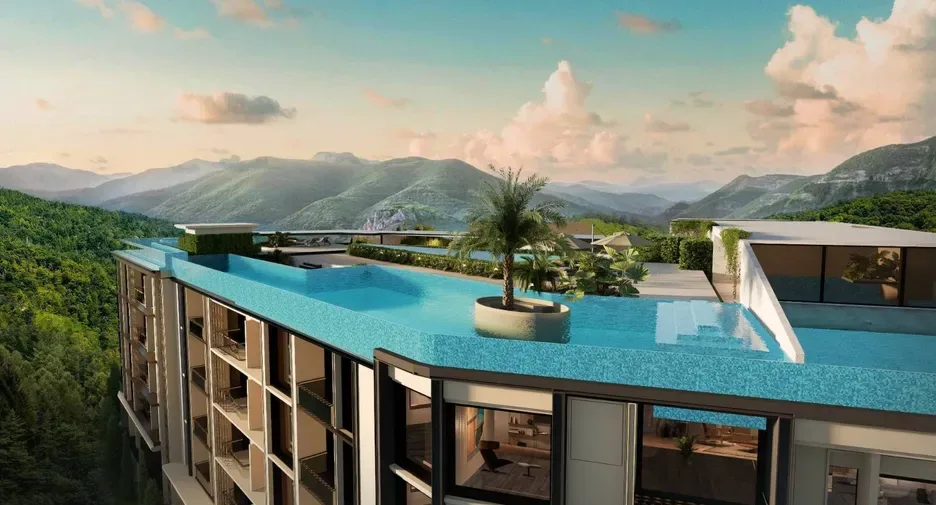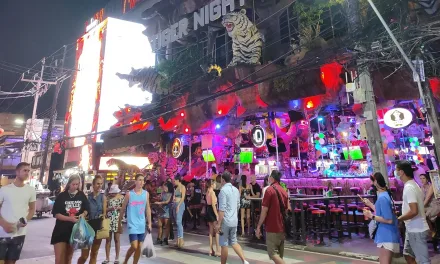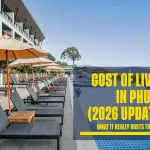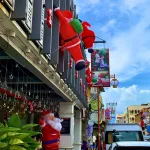Thinking about condo ownership in Thailand? Discover what it really means to buy, live, and invest in Thai condominiums — from freehold rules and lifestyle perks to hidden risks and rental potential. Get the facts before diving into condo ownership.
Table of Contents
Ever wondered if condo ownership in Thailand is the dream people say it is?
Or if it’s more of a risky love affair with sunshine, bureaucracy, and “Barry at the pub” advice?
Let’s cut through the myths and talk straight — about condo ownership, the investment potential, the lifestyle perks, and the risks that make people nervous.
The Real Talk: Why Condo Ownership Feels So Tempting
Owning a condo in Thailand sounds dreamy — waking up in Phuket, coffee with an ocean view, maybe renting it out when you’re not around.
But before you sign any dotted line, ask yourself:
Is this an investment, a lifestyle choice, or a risk dressed up as paradise?
That’s the million-baht question.
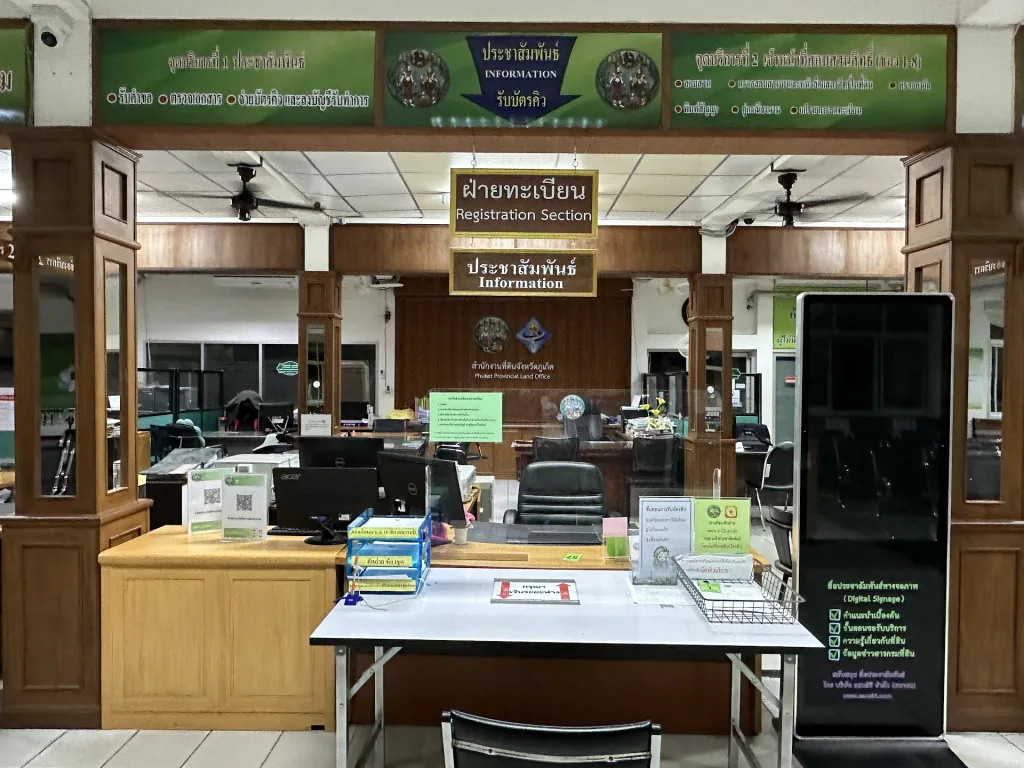
Understanding How Condo Ownership Works in Thailand
Here’s the short version: foreigners can own condos in Thailand — 100% — as long as the building stays within the 49% foreign quota under the Condominium Act (1979).
You don’t own the land beneath it.
You own the “air space” inside the walls — your actual unit — plus a share of common areas like the pool and lift.
You get a Chanote title deed (กรรมสิทธิ์ห้องชุด), which is legally recognized by the Thailand Land Department.
You can sell it, rent it, or even inherit it.
What you can’t do is own the land — that’s reserved for Thai nationals.
So yes, condo ownership is real, but land ownership isn’t.
That’s where a lot of the online shouting starts.
Investment Angle: Can Condo Ownership Actually Make You Money?
If you’re eyeing a Phuket condo as an investment, here’s what you need to think about:
Pros:
- You can rent it out legally (under certain conditions).
- Condos in tourist-heavy areas like Bangkok, Phuket, Pattaya, and Chiang Mai have strong demand for short-term stays.
- Developers like Sansiri, Ananda, and Raimon Land offer guaranteed return schemes (though read the fine print).
Cons:
- Oversupply is real. Thousands of new units go up every year.
- Resale markets can be slow — foreigners buying from foreigners is a small pool.
- Maintenance fees, sinking funds, and foreign exchange rates can bite into returns.
Average ROI in Popular Thai Cities
| City | Average ROI (Long-term Rental) | Short-Term Rental (Airbnb) | Market Notes |
| Phuket | 4–6% | 8–10% | Strong tourist demand, seasonal dips |
| Bangkok | 3–5% | 6–8% | Expats & locals, high supply |
| Chiang Mai | 4–5% | 5–7% | Lower prices, niche market |
| Pattaya | 5–7% | 10–12% | Oversupply risk, nightlife-driven |
Tip: Avoid chasing the highest yield. Focus on well-managed buildings, low common fees, and locations with consistent demand — like Bang Tao, Rawai, or Surin Beach (check out Best Quiet Beach in Phuket for lifestyle context).
Lifestyle Angle: Living the Dream (or Not?)
Let’s be honest.
Many expats don’t buy condos because they want to make a killing — they buy them because they want control, comfort, and belonging.
No more rent negotiations.
No more wondering if your landlord will bump up the price next year.
Just your own slice of sky — pool, gym, and beach access included.
Lifestyle wins:
- Hassle-free ownership for long-term living or retirement.
- Affordable luxury — ocean-view units cost far less than Western city apartments.
- Low property tax and no inheritance tax.
- Proximity to Thailand’s vibrant expat hubs — Phuket, Hua Hin, Bangkok, and Chiang Mai.
And let’s not ignore the soft power of lifestyle — the beaches, the street food, and the simple joy of stepping out of your condo barefoot into 28°C mornings.
If that’s your version of success, you’re already winning.
Risk Angle: The Fine Print Nobody Likes Talking About
Here’s the thing about condo ownership in Thailand — it’s not all sunshine and pad thai.
1. Legal Grey Areas
- Not all developers play fair. Always verify foreign quota status before transferring funds.
- Avoid off-plan deals that promise the world but deliver cracked tiles and chaos.
- Use a real lawyer, not the one the developer recommends.
2. Resale Market Reality
- Selling your condo can take months — or years.
- Most buyers are local Thais, and they often get better deals on Thai quota units.
3. Management Matters
- Bad management kills good investments.
- A poorly run building means leaking roofs, broken lifts, and endless committee drama.
4. Visa Limitations
- Owning property doesn’t mean you can stay forever.
- You still need a valid visa — Retirement Visa, LTR Visa, or Thailand Elite Visa — to live here legally.
You can read more about the realities of expat life and visas in Phuket Expat Guide 2025.
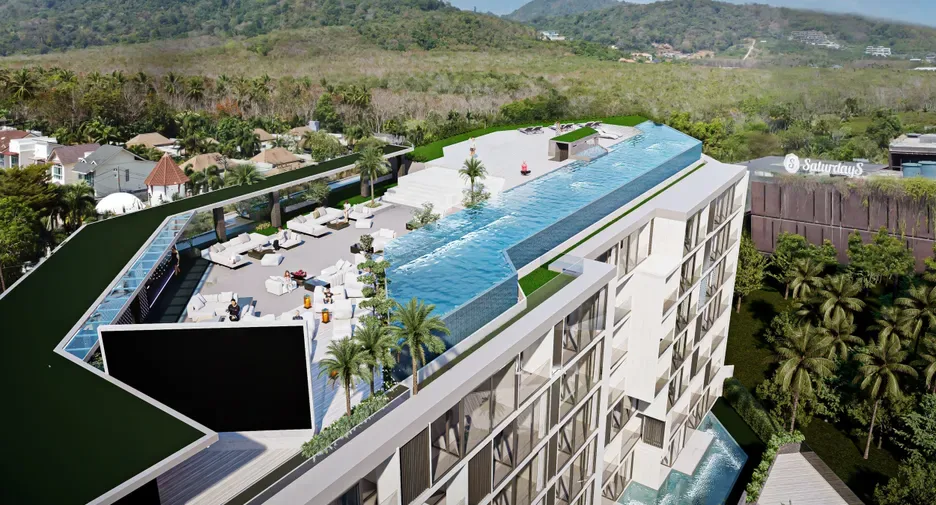
So… Buy or Don’t Buy?
If you’re thinking of condo ownership purely for investment — run the numbers.
If it’s for lifestyle — go for it, but go in with open eyes.
Here’s a quick sanity check list:
- ✅ Hire an independent property lawyer.
- ✅ Check the 49% foreign quota.
- ✅ Review building management and maintenance history.
- ✅ Understand the freehold vs leasehold difference.
- ✅ Plan your exit strategy — resale or inheritance.
- ✅ Never buy based on emotion or Facebook advice.
Real estate isn’t about luck — it’s about literacy.
Comparing Condo Ownership vs Renting in Thailand
| Factor | Buying a Condo | Renting a Condo |
| Initial Cost | High (deposit + taxes) | Low |
| Flexibility | Low (hard to sell quickly) | High (move anytime) |
| Maintenance Fees | Paid by owner | Covered by landlord |
| Visa Benefits | None directly | None |
| Long-Term Value | Potential appreciation | None |
| Emotional Satisfaction | High (your own space) | Moderate |
If you crave stability, buying makes sense.
If you value mobility, renting wins.
And if you’re still unsure, spend six months renting first before you buy.
Real Example: The Dale Linwood Debate
A post by Dale Linwood recently went viral.
He proudly shared he’d bought another condo “100% in my name.”
The internet went wild — half cheering, half accusing him of not knowing the law.
This sums up the whole debate — people mixing facts, emotions, and outdated advice.
The truth? Dale was right.
Foreigners can own a condo outright — but only within the rules.
The confusion comes when people mix condo ownership with land ownership.
They’re two different beasts entirely.
After the Purchase: What Condo Ownership Really Looks Like Day to Day
So, you’ve got the keys.
Maybe your condo’s in Phuket, near Bang Tao, or somewhere quiet like Rawai.
You’re finally home — or at least it feels that way until the building WhatsApp group starts pinging about “urgent maintenance fees.”
Here’s the truth about condo ownership once the papers are signed:
You’re not just an owner.
You’re part of a mini democracy — with committee meetings, rules about pets, and that one guy who thinks he runs the building.
Things that catch new owners off guard:
- Common area fees: They rise every few years, especially in beachfront developments.
- Sinking funds: Mandatory for long-term maintenance — elevators, roofs, pools.
- Building politics: Not all owners share the same priorities.
- Language barrier: Most notices come in Thai, not English.
Owning a condo here means you’re managing a property and your patience — both equally important.
Condo Ownership and Renting Out: The Fine Balance Between Passive Income and Headaches
Many foreigners picture their condo as a part-time Airbnb income generator.
And yes, that can work — if you play by the rules.
Short-term rentals under 30 days are technically restricted unless your building holds a hotel license.
Most don’t.
Still, some owners fly under the radar, listing on Booking.com, Airbnb, or private Facebook groups.
It’s common — but risky.
Smart owners stay compliant by:
- Renting for 30 days or longer.
- Registering tenants with the Thai Immigration Bureau.
- Hiring local property management companies who handle everything — listings, cleaning, check-ins.
If that sounds appealing, check out How to Choose a Property Manager in Phuket — it’s a lifesaver for remote investors juggling multiple units.
The Money Side: Fees, Taxes, and the Numbers That Sneak Up on You
Let’s talk about what doesn’t make the glossy brochure — the hidden costs.
Owning a condo in Thailand comes with a few ongoing realities:
- Common fees: usually 40–100 baht per sqm/month.
- Water & electricity: slightly higher than local rates in managed complexes.
- Annual property tax: depends on usage (residential vs rental).
- Income tax: applies if you rent it out, even occasionally.
Oh, and if you decide to sell, expect:
- Transfer fees (2%) split between buyer and seller.
- Withholding tax (1%) for foreigners.
- Stamp duty or specific business tax, depending on how long you’ve owned it.
Suddenly, your 5% ROI doesn’t feel quite so fat.
But if you’re playing long-term — and you love where you live — it can still make sense.
Maintenance and Management: How Condo Ownership Depends on Who Runs the Building
Ever walked into a lobby and instantly felt the difference between “well-managed” and “uh-oh”?
That’s the invisible hand of property management at work.
A well-run condo means:
- Clean common areas.
- Fair committee voting.
- Transparent accounts.
- Responsive staff.
A badly managed one means:
- Rusted gym equipment.
- Broken elevators for weeks.
- Vanishing maintenance funds.
- Endless blame games in the Line group.
If you’re serious about your condo ownership journey, choose developments managed by names like CBRE, Knight Frank, or Savills — or smaller local teams with solid reputations.
Good management protects your investment.
Bad management drains it quietly.
Leasehold vs Freehold: Still Confusing After All These Years
Let’s untangle this once and for all.
- Freehold: You own the condo outright (within the 49% foreign quota).
- Leasehold: You rent the property for up to 30 years, renewable but not guaranteed.
Some developers try to sell leasehold as “just as good,” but it’s not the same.
Freehold gives you ownership rights, resale flexibility, and legal protection.
Leasehold gives you time — but not control.
So before signing anything, double-check your Chanote title deed at the Land Department.
It should clearly state foreign ownership and freehold status.
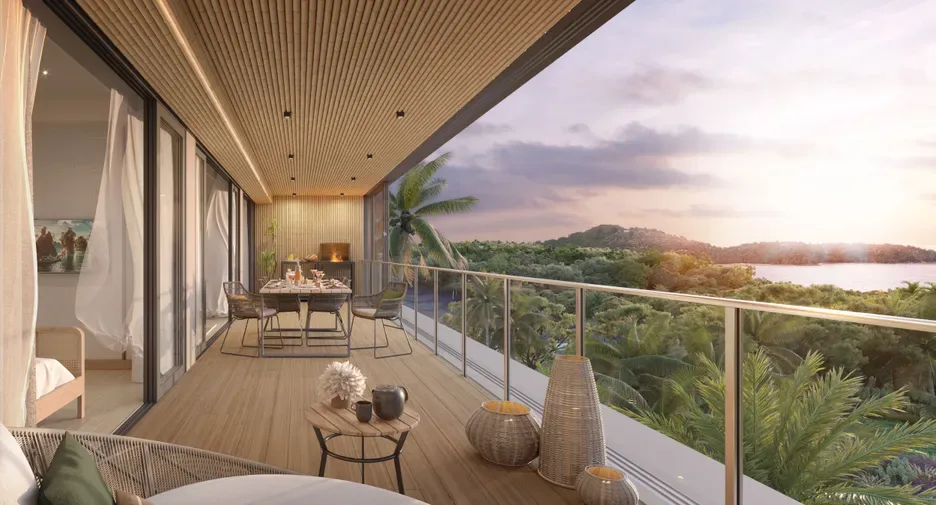
Neighborhood Matters: Where You Buy Shapes Your Ownership Experience
Different cities, different vibes.
Phuket offers resort-style living.
Bangkok gives you urban buzz.
Chiang Mai delivers calm mountain energy.
Pattaya is still nightlife central.
But location isn’t just about lifestyle — it’s about sustainability.
Phuket hotspots for condo buyers:
- Bang Tao: High-end villas, strong rental demand.
- Rawai & Nai Harn: Quiet, family-friendly.
- Patong: High yield, higher noise.
- Kata & Karon: Balance between fun and livable.
You can explore local insights like What to Do in Kata & Karon to get a feel for these areas before committing.
The area you choose will define your returns, your community, and your morning view.
Foreign Exchange, Visas, and Bureaucratic Reality
Let’s face it — you can’t talk about condo ownership in Thailand without mentioning money transfers and visas.
Foreigners buying a condo must:
- Transfer funds from abroad in foreign currency.
- Declare “for the purchase of a condominium” on the transfer.
- Keep the Foreign Exchange Transaction Form (FETF) safe — you’ll need it at the Land Office.
And about visas — property ownership doesn’t automatically earn you residency.
You’ll still need one of these:
- Retirement Visa (Non-Immigrant O-A) — 50+ years old, 800,000 THB in the bank.
- Long-Term Resident (LTR) Visa — for investors or professionals.
- Thailand Elite Visa — pay-to-stay luxury route.
Your ownership stays valid even if your visa expires, but living here comfortably?
That’s another story.
For the full picture, you can read Phuket Expat Guide 2025 — it breaks down how to make Thailand feel like home without the stress.
Common Misconceptions About Condo Ownership That Still Float Around
You’d think by now everyone would know the basics.
But every expat Facebook group has at least one guy insisting foreigners “can’t own anything.”
Here’s what’s actually true:
- You can own a condo in your own name.
- You can’t own land unless under BOI or a 40-million-baht investment clause.
- You can pass your condo to heirs.
- You can sell anytime — but only to another foreigner if the quota allows.
- You can’t bypass the 49% rule with fake companies anymore — the government cracked down hard.
The Thailand Land Department is strict now, and that’s good news for legitimate owners.
The days of sketchy “company ownership” setups are numbered.
Condo Ownership and Lifestyle Reality: Not All Paradise, Not All Pain
Living in a Thai condo isn’t about palm trees and infinity pools every day.
Sometimes it’s storm drains, visa runs, and a cat that won’t stop howling on the next balcony.
But it’s also sunset swims, a slower rhythm of life, and knowing you own your little pocket of peace.
That’s what keeps most owners here — not profit margins or market trends.
It’s the lifestyle, the autonomy, and the freedom to choose where and how you live.
So if you’re sitting there in your air-conditioned condo, wondering if you made the right call — you probably did.
Because condo ownership in Thailand isn’t just a property decision.
It’s a statement that you’re building a life on your own terms — and that’s worth more than any return on investment.
FAQs about Condo Ownership in Thailand
Can foreigners own property in Thailand?
Yes — foreigners can own condos (freehold) under the Thai Condominium Act.
They can’t own land unless through specific BOI investment or long-term lease structures.
Is condo ownership a good investment?
Depends on your goal.
If you’re looking for steady rental income, maybe.
If you’re hoping to flip it for profit — less so.
It’s more of a lifestyle investment than a quick win.
How much are condo maintenance fees in Thailand?
Usually between 40–80 baht per sqm per month, depending on the building.
Luxury projects can charge up to 100+ baht/sqm.
Can I rent out my condo on Airbnb?
Technically, short-term rentals under 30 days require a hotel license.
Many owners still do it, but check your building’s regulations first.
Do I get a visa if I buy a condo in Thailand?
No — ownership doesn’t grant residency.
You’ll still need a retirement visa, LTR, or Elite visa.
What happens to my condo if I pass away?
You can pass it to your heirs, who can sell it or transfer it as per Thai inheritance laws.
Where to Learn More
If you’re researching before buying, check these reads next:
- How to Choose a Property Manager in Phuket
- How to Legally Set Up a Business in Thailand
- Phuket’s Boom in Medical and Wellness Tourism — because lifestyle matters as much as returns.
Internal links like these keep your knowledge — and your research — solid.
Final Thoughts: Condo Ownership — Investment, Lifestyle, or Risk?
Condo ownership in Thailand is a bit of all three — an investment if done smartly, a lifestyle if done from the heart, and a risk if done blindly.
If you buy for love, not greed — for peace, not profit — you’ll probably never regret it.
And that’s the real magic of condo ownership: investment, lifestyle, or risk — it’s all in how you live it.

